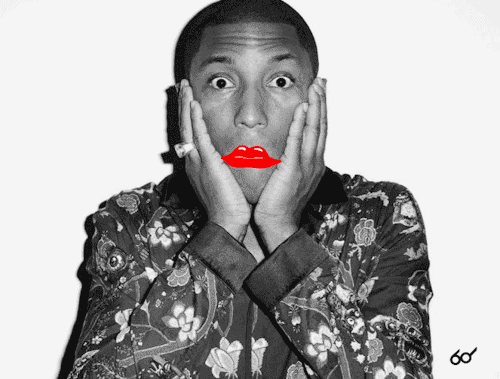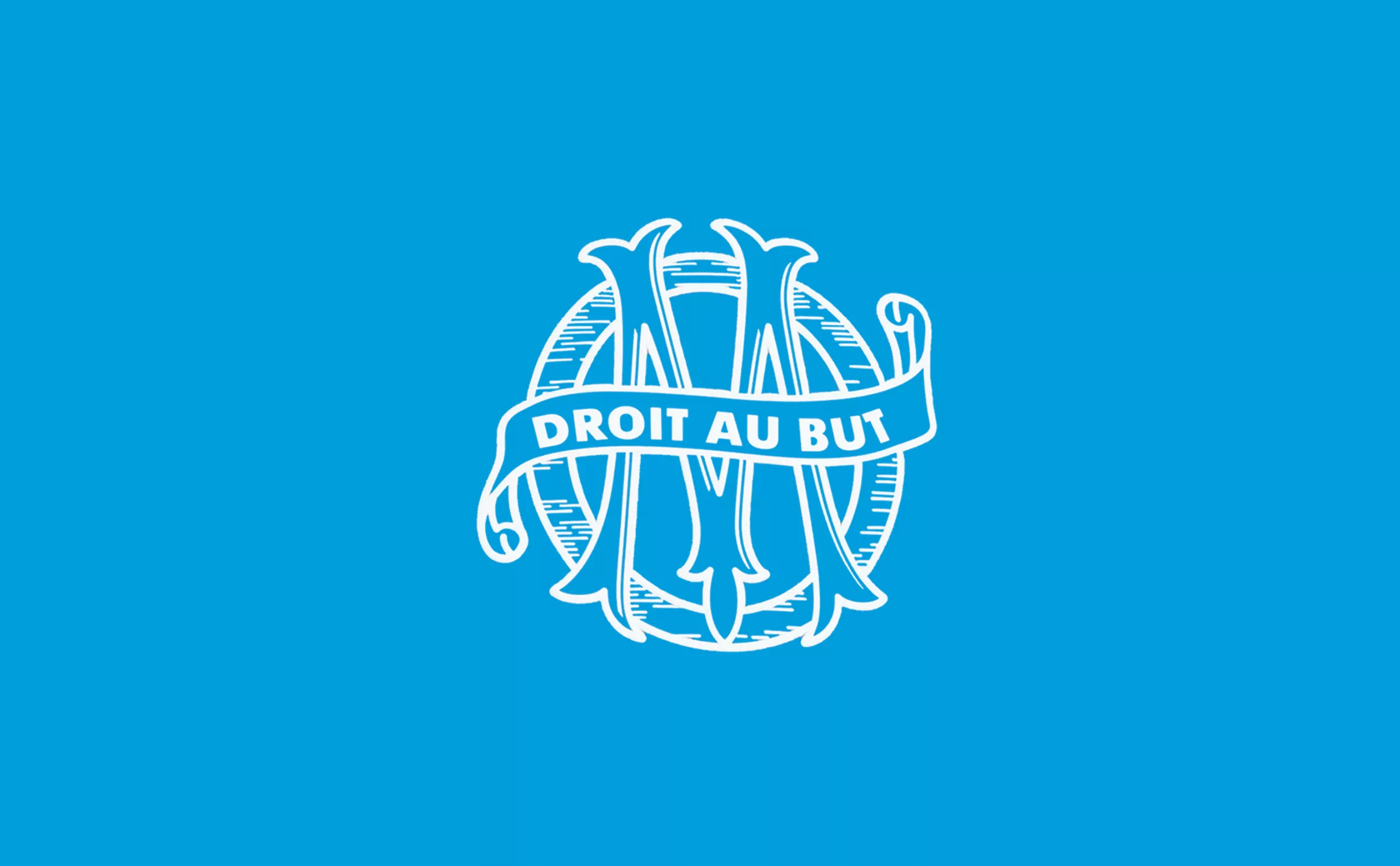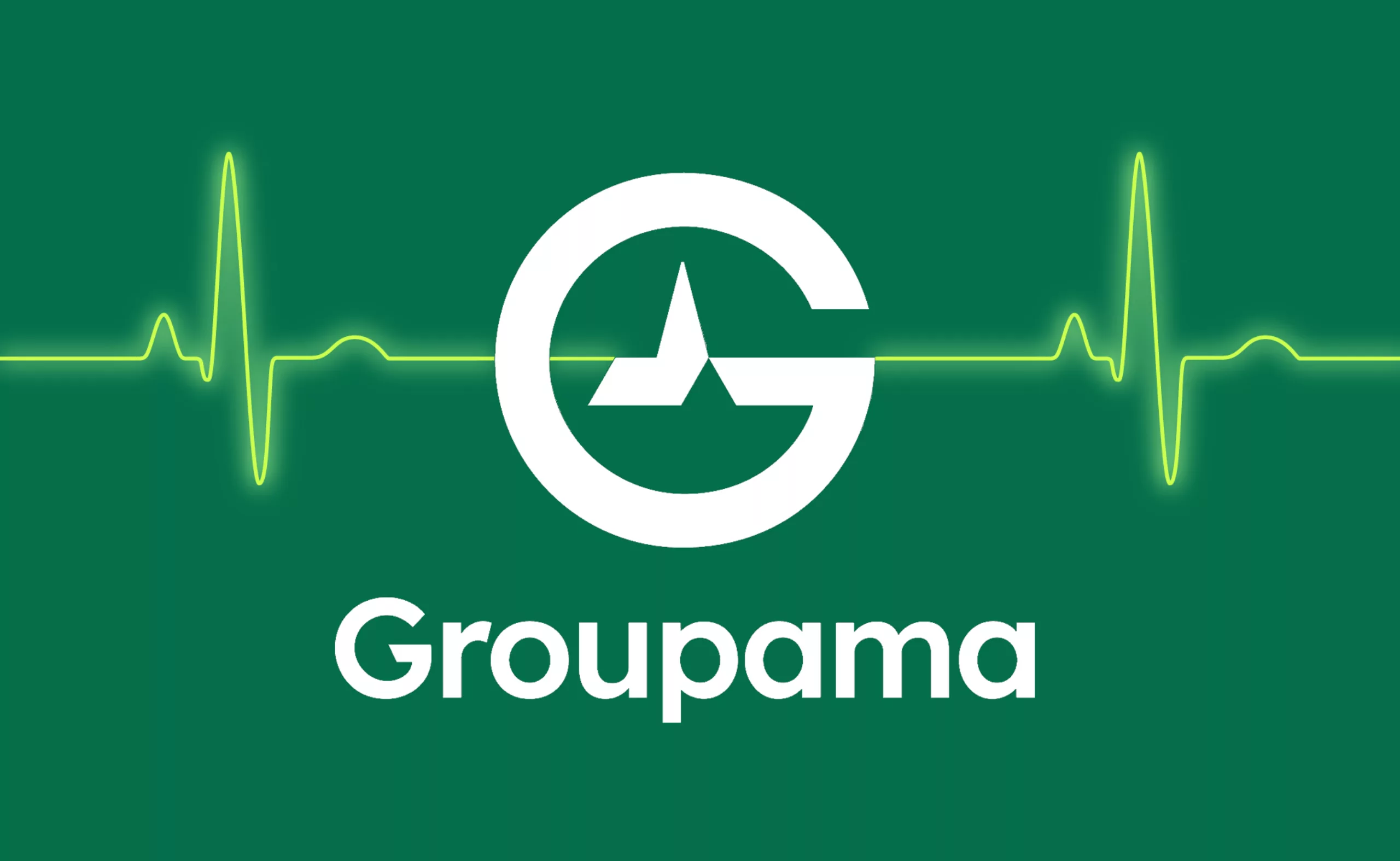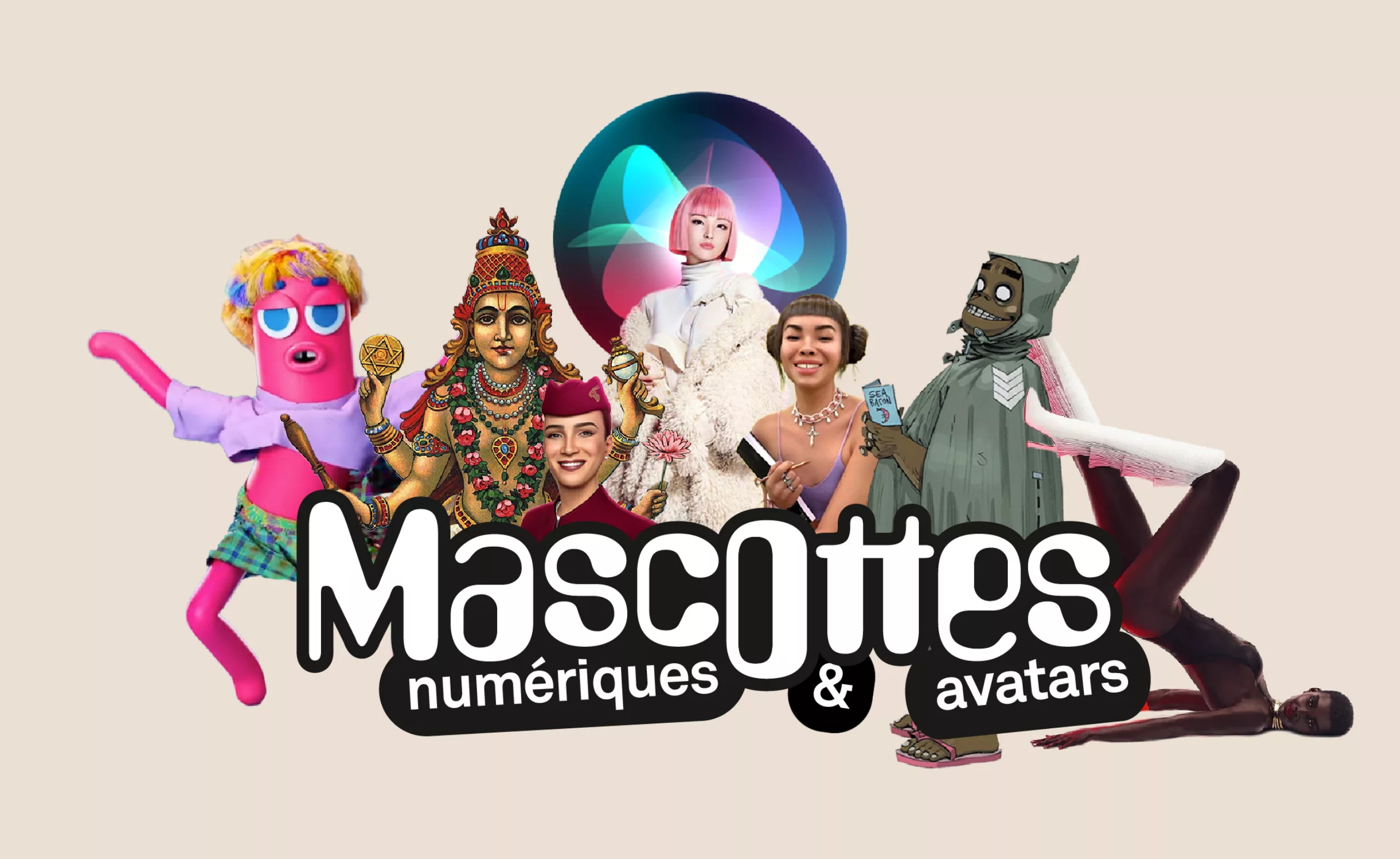W®rds are dead, w®rds live!
The privatization of language
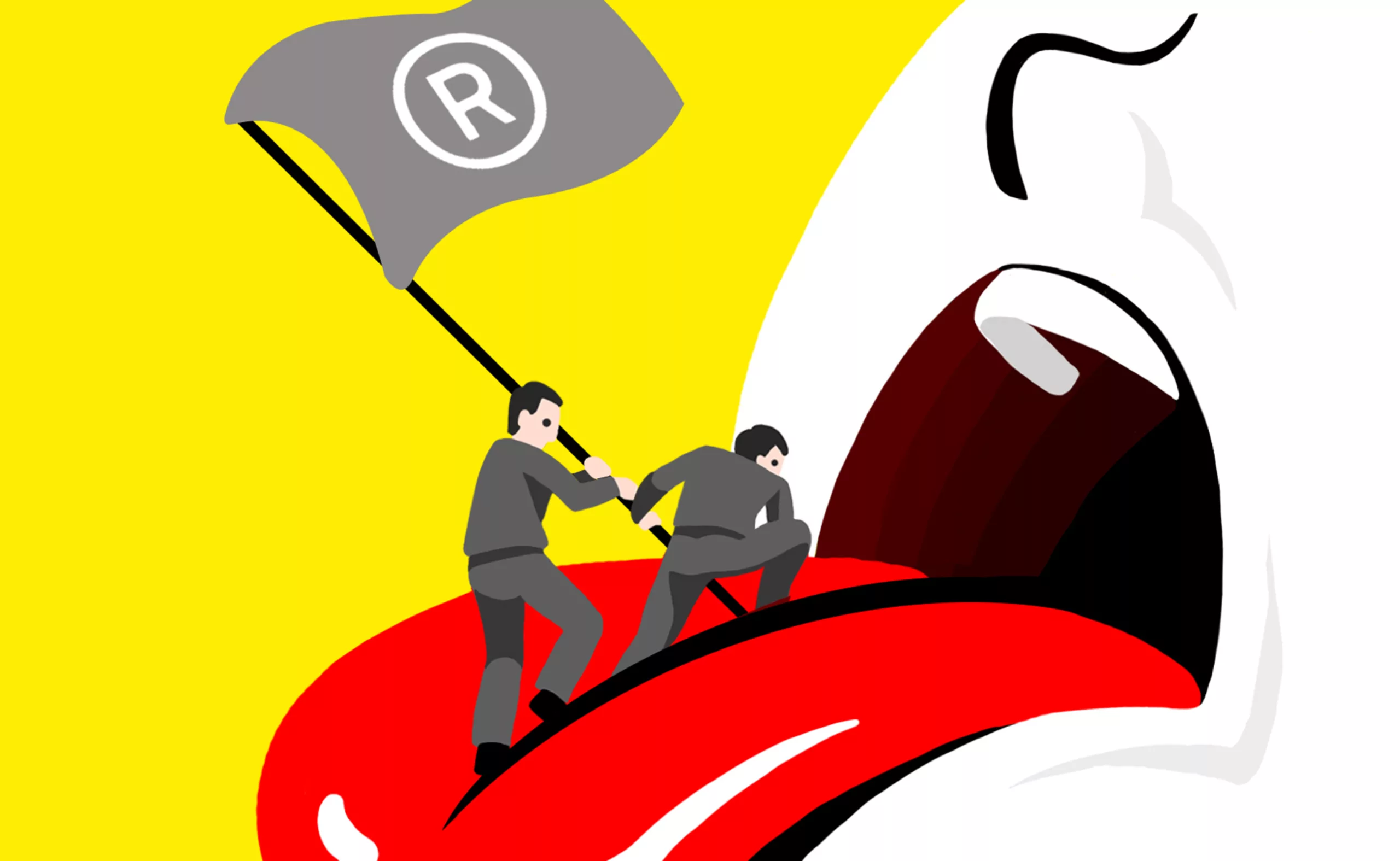
Les Hauts® Parleurs® (loudspeakers )
Today I’d like to share with you one of the best science fiction short stories I’ve read in recent years.
It’s an anticipation story that really moved me, because in addition to being original, it tackles a subject that raises questions about a daily practice of Graphéine, i.e. brand identity and its very close link with language and intellectual property. This short story is called “Les Hauts® Parleurs®” by Alain Damasio (2012), and I’d like to thank Usbek et Rica magazine for telling me about it in the article “Le big data va-t-il tuer la création” (“Will big data kill creation?”) in its ninth issue.
Alain Damasio is a French author whose literary work is largely focused on science fiction and fantasy. His themes are inspired by the work of Gilles Deleuze and Michel Foucault, and plunge us into political anticipation and the excesses of controlled democratic societies. Originally published in November 2002 in the collection “Une autre mondialisation en mouvement” (Mango documents), Les Hauts® Parleurs® is a short 20-page story available online at juriscom.net (and as a podcast here).
Good SF to read!
Here is a free summary:
The Lexicon Ownership Act (Sharush Law), passed by the WTO in 2002, has privatized whole swathes of the world’s vocabulary. From now on, to use a word publicly, you have to pay the exploitation rights belonging to the multinationals of culture. In this Orwellian world, the Haut-Parleurs, a group of militant troubadours, are developing new free slang to escape generalized taxation. One of them, the poet Spassky, has decided to go all the way to regain the free use of the word “cat” held by the DupliCat and A-Chat brands.
The revolution erupted when Spassky gave a speech estimated at 17 million, ending with:
“It’s high®time® to learn that the Earth(TM) isn’t blue(TM) like an Orange(TM).”
This quotation is of course a direct reference to Paul Eluard’s surrealist poetry, which exalts the freedom of language freed from all logic.
Extract:
“If we are to be credited with any usefulness, let’s just say that as early as 1993, we were the first to anticipate the drift of property rights, to spot, in the thicket of commercial jurisprudence, the dangerous and ill-contained extension of brand names – the first, above all, to understand that the worldwide annexation of the word “orange” heralded an inexorable movement that would culminate in the thunderclap of the law on lexicon ownership…”
The $17 million speech
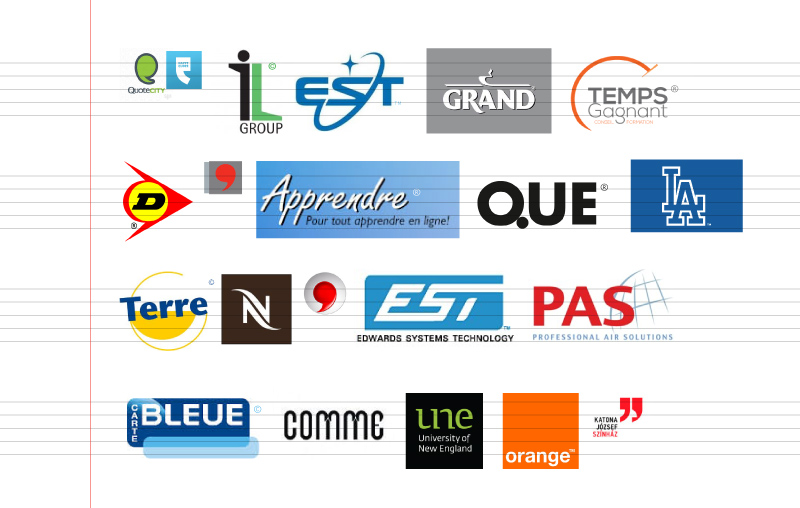
Trademark rights and the privatization of language
In our consulting and brand identity creation business, we are frequently asked to create both logotypes and brand names. Our googled world has made digital visibility a key asset in corporate communications. Reserving domain names, adwords campaigns and skilful SEO techniques are the weapons in a fierce battle to reach the top of the first page of search engine results. In this context, the choice of a name for a company (or a product) becomes a much greater value than the graphic qualities of its layout, or what is commonly known as its logo. (see our previous article on the impoverishment and standardization – arialization – standardization of famous brand logos).
In this globalized linguistic struggle, the graphic aspect of identities seems to become anecdotal. It can change its wardrobe according to trends (flat / skeumorphism, be minimalist or baroque…) while the lexical and syntactic choice of name becomes a highly strategic issue for building notoriety over time. And the least we can say is that it’s a tough job to come up with a name that hasn’t already been registered by a competitor, so saturated is the economic space with words that are the subject of patents and intellectual property. We’re swimming in the murky waters of linguistic capitalism – beware of the minefield!
And Calimaq on framablog rightly sounds the alarm:
“You’d think it was just a fantasy, but a series of blunders by the Trademark Bullies, those firms that use trademark law as a means of intimidation, show that it isn’t: Facebook is seeking to appropriate the words Face, Book, Wall and Mur; Apple is attacking a Polish online grocery store that had the misfortune to be called “a. pl”; Lucasfilm is on the hunt for Android applications whose name includes the term “Droid”, registered as a trademark after Star Wars, even when they have nothing to do with the robots in its films…”
(I invite you to urgently read his translation of Cory Doctorow’s article « Trademarks : the Good, The Bad and The Ugly »)
From trademark law to trademark duty
Trademark law was originally invented to protect against fraud. It is the very essence of the “brand” concept to certify the origin of a product or service. A brand must therefore be extremely “singular” to fulfill this function. All the more so in our globalized world, where competition is exponential. This law is supposed to protect the public interest. Logically, the first victim of fraud is the consumer, and most of the time, you have to be a victim to be able to take legal action and claim compensation. However, it is never the consumer who takes legal action against the counterfeiter of a famous soda. Trademark law gets around the problem by giving the trademark owner the right to sue on behalf of the victims. But let’s not be fooled: it’s not the common interest that is generally defended, but private economic interest. What might seem like a duty is in fact a right that has been abused to become a considerable economic weapon.
It’s not only multinationals that make exaggerated claims to the ownership of words. On our scale, we were the victims of a legal action brought by the “Graphèmes” company, which considered that “Graphéine” was an infringement of their trademark. Graphème is a common noun meaning the smallest entity in a writing system (e.g. a letter), while Graphéine is a neologism meaning “the active substance of graphics”. The method of intimidation is simple and well-tried. All you have to do is ask for several hundred thousand euros in damages, without even having to prove any prejudice. The result: after 4 years of proceedings, an unfavorable ruling for Graphéine in the first instance, legal fees at our expense and devastating psychological pressure, Graphéine (the neologism) is not an infringement of Graphèmes (the common name). However, no one can use the common name “graphème” in the field of graphic design and communication any more, as the validity of their trademark has been recognized on appeal.
I look forward to the day when trademark law becomes the duty of trademarks, and when their responsibility is engaged to ensure that the words of language remain common property, not susceptible to privatization. We all stand to gain.
In the meantime, if you are the victim of a similar situation, we can only refer you to our law firm: OX Avocats.
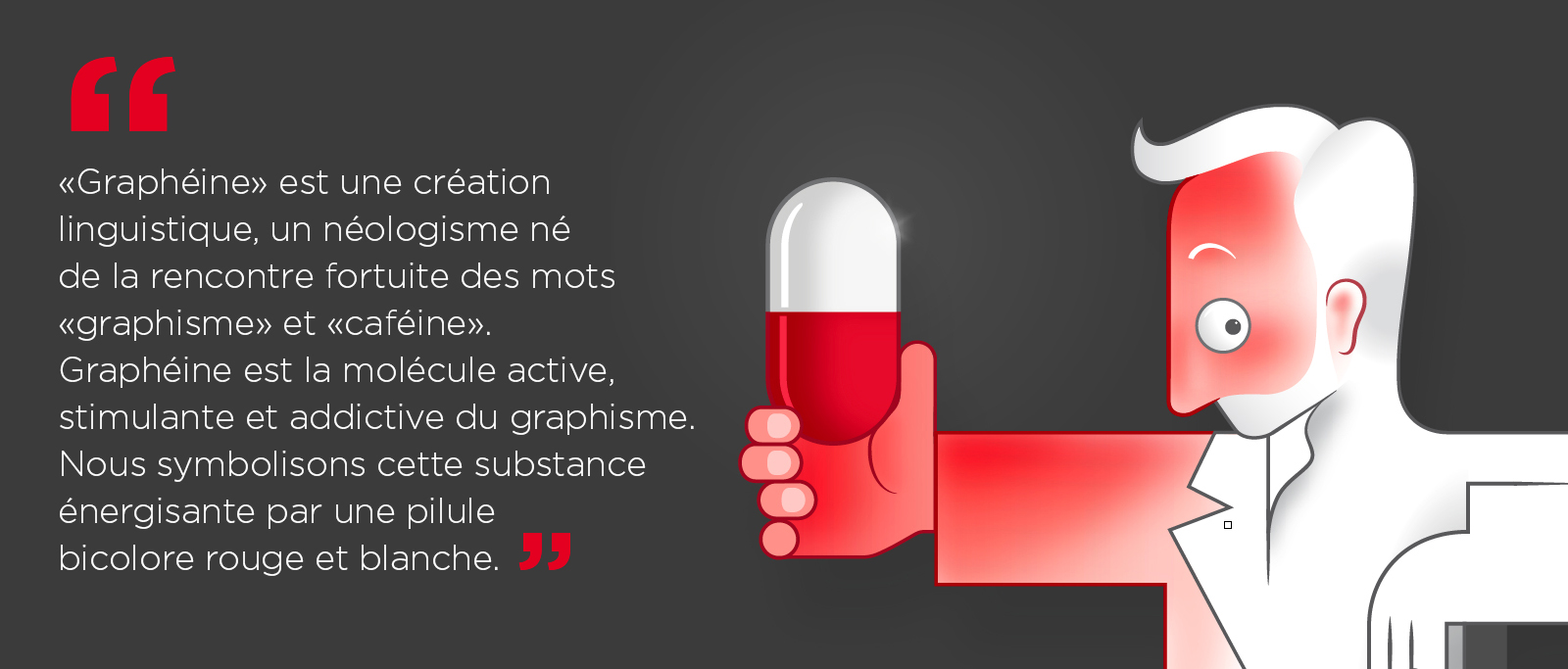
Playing with your language… and those of others!
So how can we think outside the box and come up with names that are more than just the appropriation of words from the dictionary? Why not simply create new words, whimsical “vocables” that are both relevant and poetic?
At Graphéine, we like to play with images, but also with words. Words are above all images that have forgotten to be wise (in reference to the French expression “sage comme une image”; literally: wise as an image/=very wise)! In our process of creating brand names, we often use the technique of “neology”, which simply means “new word” in ancient Greek, to create neologisms. As an example, the name of our agency itself acts as a manifesto, fusing the words “graphic design” and “caffeine” to create the stimulating substance of graphic design! (Prefixes, suffixes and radicals from French, English, Greek and Latin are the raw material that goes through the blender of our boiling brains to give birth to hybrid words rich in evocation of the brands / products / services we aim to baptize.
A real Dr Frankenstein’s labor!
A little poetry in this world of ®
Don’t be so down-to-earth: try graphéine!
The advantages of a successful neologism as a brand name are many:
– It invents a new word and a new meaning – the neologism’s seams may be visible (allowing us to understand the multiple origins of the new word), but the creation remains phonetically harmonious and pronounceable, and the result is semantically memorable.- it’s an original creation subject to copyright.
– It does not privatize common language, but celebrates linguistic inventiveness.
– It allows several ideas/concepts to be conveyed in a single word through semantic condensation.
– It endows the company with a resolutely creative spirit, creating distinctiveness, originality and even humor!
What better way to stand out from the crowd than with a new word?
This is our vision of communication, advertising and naming!
Creating wealth, culture and keeping “common sense” in mind!
I’ll leave it to Deleuze to conclude:
“I’d like to say it’s just a style. It’s the property of those of whom we usually say ‘they have no style…. “.
It’s not a signifying structure, nor a thoughtful organization, nor a spontaneous inspiration, nor an orchestration, nor a little music. It’s an arrangement, an arrangement of enunciation.
Style is the ability to stammer in your own language. It’s difficult because there has to be a necessity for such a stammer. Not to stammer in speech, but to stammer in language itself.
To be like a foreigner in your own language. […] all contradictions are good, as long as they are not interpretations, but are about the use of the book, multiplying its use, making another language within its language. “Beautiful books are written in a kind of foreign language…”
This is the definition of style. Here too, it’s a question of becoming. People are always thinking of a future with a majority (when I grow up, when I have power…).
Whereas the problem is one of becoming-minority: not pretending, not making or imitating the child, the madman, the woman, the animal, the stutterer or the foreigner, but becoming all of these, to invent new strengths or new weapons.
Excerpt from Gille Deleuze / Claire Parnet: Dialogues (Flammarion, 1977)
